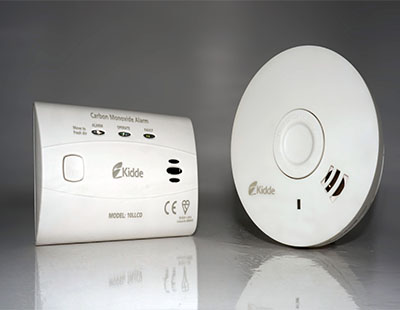
Landlords risk being overwhelmed and deterred by the volume of changing legislation surrounding the private rental sector, a PropTech entrepreneur warns.
Jonathan Daines, chief executive of online lettings platform LettingaProperty, says the issue is the vast amount of frequently-changing legislation.
The latest example, he suggests, is the new smoke and carbon monoxide regulation coming into effect on October 1.
“Landlords should be aware of their changing responsibilities come October 1. While the majority of landlords will already have compliant smoke and carbon monoxide alarms, they may not realise the additional requirement to repair and replace these during the tenancy. These changes may seem small versus other legislation in the pipeline, but it's more important than ever for landlords to be clued-up on all their legal obligations” he adds.
The regulations have been in place since 2015 but are changing in October; from the start of that month all tenancies in England (including unlicensed HMOs but excepting accommodation such as student halls, hotels and care homes) will need to comply with the amended regulations.
The regulations require at least one smoke alarm on each storey of the home that has a room used as living accommodation. This requirement isn’t new for private landlords, but will now apply to social landlords too.
Landlords must also ensure there is a carbon monoxide alarm in any room that contains a fixed combustion appliance (such as log-burning stoves or gas or oil boilers but excluding gas cookers) and which is used as living accommodation.
Perhaps the biggest change for landlords is that they will be responsible for repairing or replacing any smoke and carbon monoxide alarms once they are informed by their tenant. Before the amended regulations, landlords are currently responsible for installing and testing the alarm at the start of the tenancy – but it is the tenant's default responsibility to repair or replace it during the tenancy.
As of October 1 landlords will be responsible for this, though they will still rely on tenants to report issues.
All alarms must comply with British Standards BS 5839-6 (smoke alarms) and British Standards BS 50291 (carbon monoxide alarms), though it is up to landlords whether they equip mains or battery powered alarms.
The government has advised that for battery-powered alarms, tenants should replace the batteries themselves. If the alarm still doesn't work, or the tenant is unable to replace the batteries, they should report it to the landlord.
Landlords must continue to ensure that alarms are in proper working order on the day that a tenancy commences and must keep a record of this. Any landlord who breaches the regulations may be liable for remedial notices and ultimately a fine of up to £5,000.
We're excited to announce that we're working on building a shiny new website for readers of Landlord Today! As part of this process, commenting on articles will be temporarily disabled. We look forward to sharing our new and improved Landlord Today website with you shortly!









.png)

(1).png)







